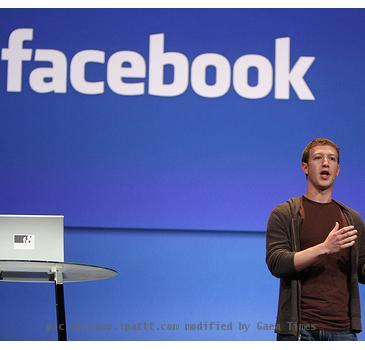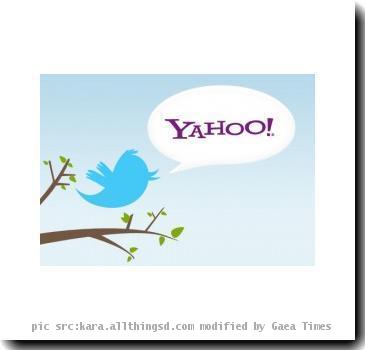Candidates and the iCampaign: Hopefuls already savvy with Facebook, Twitter embrace phone apps
By Kate Brumback, APMonday, June 21, 2010
iCampaigning? Candidates turning to phone apps
ATLANTA — Running for office? You can make an app for that.
Maintaining a Facebook page and Twitter feed has become standard practice for political candidates seeking to get their message out. And some are even creating iPhone applications so supporters can follow their campaigns and make contributions on the go.
The method has grown in popularity — especially since President Barack Obama’s widely chronicled and successful embrace of social media during the 2008 campaign. He even had a sophisticated iPhone app that let people get in touch with local organizers and find local events.
“The demand for it, to be able to do it, is going to grow a lot, particularly if it’s shown that apps are an effective way to raise money for a political campaign,” said Peter Scheer, executive director of the California-based First Amendment Coalition.
Doug MacGinnitie, a Republican running to be Georgia’s secretary of state, has an iPhone app that provides information about his campaign and helps supporters donate money. Friends approached him about making one for the campaign last year, and it’s been downloaded roughly 200 times, he said.
“I don’t think it’s going to change the course of history, but I’ve gotten comments from people who think it’s cool,” MacGinnitie said. “It reinforces the notion that I come from the business world, which is generally quicker to embrace technology.”
Minnesota House Speaker Margaret Anderson Kelliher, who’s running to be the Democratic nominee for governor, has an app that lets people follow her calendar, read news releases, familiarize themselves with her background and make campaign contributions.
“It shows that our campaign is a modern campaign,” said Kelliher spokesman Matt Swenson. “We’re connecting with people where they are right now through the phones in the palms of their hands.”
Illinois state Sen. Dan Rutherford, who’s the Republican candidate for state treasurer, said his campaign has been using so many other forms of social media — even announcing his candidacy via Twitter and Facebook — that an iPhone app was the next logical step.
“This is another medium for our supporters to track us, and we have people in house who can do it, so it was common sense to have one,” he said.
Apple says it doesn’t keep track of how many campaign apps — or any other kind of app — are among the roughly 225,000 in its app store.
If a candidate doesn’t have a friend or staffer who can do it, a basic iPhone app might cost between $5,000 and $10,000 to develop, said Gregg Weiss, the founder of iPhoneAppQuotes.com, which matches people wanting to create an app with U.S.-based developers.
Apple has had spats over rejected apps, including at least one candidate whose app was turned down. Some online chatter has focused on whether the power to reject gives Apple too much influence over politics, though Scheer dismissed that notion.
“There certainly would be a problem if there were no competitor to Apple offering an alternative platform to reach a similar audience,” Scheer said. But there are competitors — for instance, BlackBerry and phones that use Google’s Android software.
Google spokesman Anthony House said in an e-mail that the company doesn’t review Android apps but will take them down if they use illegal content, are obscene or violate other policies.
Jamie Ernst, of BlackBerry maker Research In Motion, said in an e-mail that apps must be submitted for approval before they appear in BlackBerry’s App World but that there are no specific guidelines for political apps.
Some also have worried that Apple’s rejections limit free speech. But Scheer said Apple is able to control what’s in the apps because it’s a private entity and not the government, and the company could reasonably argue it’s like a publisher.
“Their whole smorgasbord of apps is the equivalent of a magazine’s selection of the articles it wants to print and, therefore, it’s entitled to be as biased as it wants to be frankly,” he said.
Republican congressional candidate Ari David of California documented a tiff with Apple over his app on his campaign website. Apple initially rejected the app last month, saying it defamed the Democratic incumbent, longtime congressman Henry Waxman. David wound up losing the GOP primary.
Apple refuses to disclose the specifics of its vetting process. But the company did say a political app needs to come directly from the campaign, and its primary purpose cannot be to attack another candidate.
David argued that his app fell within Apple’s guidelines because it was critical of Waxman’s policy and actions as an elected official, not of the congressman himself. Apple subsequently reversed its decision.
“When this issue was brought to our attention, we reviewed it further and realized we made a mistake,” Apple spokeswoman Trudy Muller told The Associated Press. “While we don’t approve apps that attack individuals, that is not what this app is primarily about.”
Previously, Apple had rejected an app from a political cartoonist under its no defamation policy. The company later changed that policy to exempt political cartoons.
At a technology conference organized by The Wall Street Journal earlier this month, Apple CEO Steve Jobs admitted that the company has made some mistakes when it comes to dealing with political content.
“We’re changing the rules when it makes sense, but we think it made sense to have a rule that said you can’t defame people,” he said.
At Apple’s annual conference for software developers June 7, Jobs said about 15,000 apps are submitted for approval each week in up to 30 languages, and 95 percent of them are approved within seven days.
He said apps are rejected for three main reasons: because it doesn’t do what the developer says it does; because it might not work with upgrades to the iPhone’s operating system; and because it crashes.
Tags: Atlanta, Campaigns, Communication Technology, Computing And Information Technology, Consumer Electronics, Georgia, Internet Technology, Mobile Communications, Mobile Media, North America, Political Fundraising, Relationships, Software, United States


